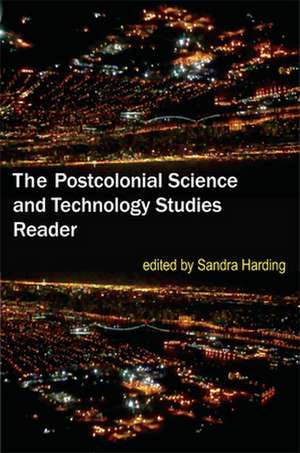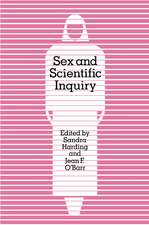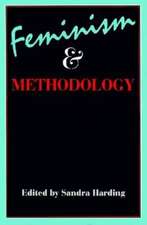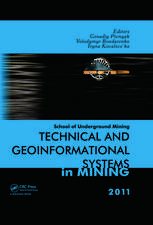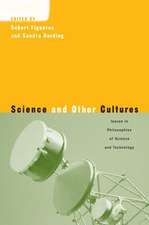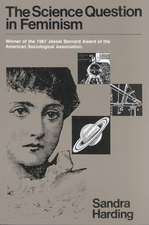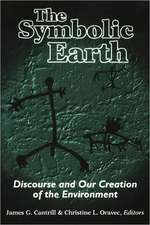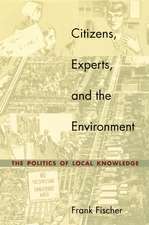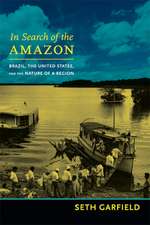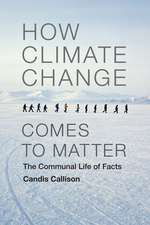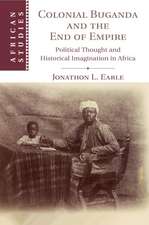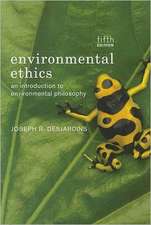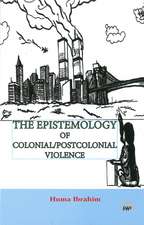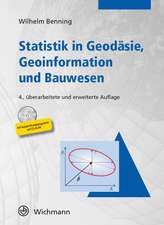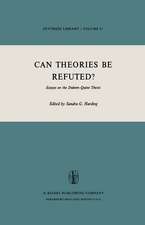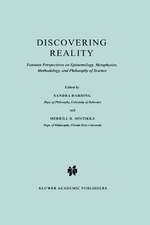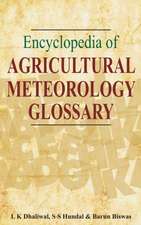The Postcolonial Science and Technology Studies Reader
Autor Sandra Hardingen Limba Engleză Paperback – 11 sep 2011
Preț: 308.90 lei
Nou
Puncte Express: 463
Preț estimativ în valută:
59.12€ • 61.49$ • 48.80£
59.12€ • 61.49$ • 48.80£
Carte tipărită la comandă
Livrare economică 14-28 aprilie
Preluare comenzi: 021 569.72.76
Specificații
ISBN-13: 9780822349570
ISBN-10: 0822349574
Pagini: 504
Ilustrații: 3 maps, 3 figures, 3 tables
Dimensiuni: 188 x 234 x 31 mm
Greutate: 0.68 kg
Editura: MD – Duke University Press
ISBN-10: 0822349574
Pagini: 504
Ilustrații: 3 maps, 3 figures, 3 tables
Dimensiuni: 188 x 234 x 31 mm
Greutate: 0.68 kg
Editura: MD – Duke University Press
Cuprins
Preface; AcknowledgmentsIntroduction. Beyond Postcolonial Theory: Two Undertheorized Perspectives on Science and TechnologyI. CounterhistoriesIntroduction; 1. Discovering the Oriental West / John M. Hobson; 2. Long-Distance Corporations, Big Sciences, and the Geography of Knowledge / Steven J. Harris; 3. Heroic Narratives of Quest and Discovery / Mary Terrall; 4. Maria Sibylla Merian: A Woman of Art and Science / Ella Reitsma; 5. Prospecting for Drugs: European Naturalists in the West Indies / Londa Schiebinger; 6. Science and Colonial Expansion: The Role of the British Royal Botanical Gardens / Lucille H. Brockway; 7. Out of Africa: Colonial Rice History in the Black Atlantic / Judith CarneyII. Other Cultures SciencesIntroduction; 8. Navigation in the Western Carolines: A Traditional Science / Ward H. Goodenough; 9. Science for the West, Myth for the Rest? / Colin Scott; 10. Ecolinguistics, Linguistic Diversity, Ecological Diversity / Peter Mühlhäusler; 11. Gender and Indigenous Knowledge / Helen Appleton, Maria E. Fernandez, Catherine L. M. Hill, and Consuelo Quiroz; 12. Whose Knowledge, Whose Genes, Whose Rights? / Stephen B. Brush; 13. The Role of the Global Network of Indigenous Knowledge Resource Centers in the Conservation of Cultural and Biological Diversity / D. Michael WarrenIII. Residues and ReinventionsIntroduction; 14. Development and the Anthropology of Modernity / Arturo Escobar; 15. Tradition and Gender in Modernization Theory / Catherine V. Scott; 16. Security and Survival: Why Do Poor People Have Many Children? / Betsy Hartmann; 17. Call for a New Approach / Committee on Women, Population, and the Environment; 18. The Human Genome Diversity Project: What Went Wrong? / Jenny Reardon; 19. Bioprospectings Representational Dilemma / Cori HaydenIV. Moving Forward: Possible PathwaysIntroduction; 20. Islamic Science: The Contemporary Debate / Ziauddin Sardar; 21. Mining Civilizational Knowledge / Susantha Goonatilake; 22. Towards the Integration of Knowledge Systems: Challenges to Thought and Practice / Catherine A. Odora Hoppers; 23. Human Well-Being and Federal Science: Whats the Connection? / Daniel Sarewitz; 24. Science in an Era of Globalization: Alternative Pathways / David J. Hess; 25. Civic Science for Sustainability: Reframing the Role of Experts, Policymakers, and Citizens in Environmental Governance / Karen BäckstrandCopyright Acknowledgments; Index
Recenzii
Sandra Hardings The Postcolonial Science and Technology Studies Reader succeeds in mapping a new field of inquiry for those of us working in science and technology studies. This brilliant collection of articles successfully bridges post-colonialist and feminist approaches to science and technology studies, and provides the foundation for essential transformations of curriculum and research in this area. The essays in this collection provoke examination about how different knowledge systems function and call into question who benefits and is disadvantaged by those systems. For those committed to the tenet that just societies require just practices of science, this collection is indispensable. No science/technology studies or STS curriculum is complete without it. Nancy Tuana, Penn State UniversityThis magisterial, compelling, and important collection pushes the boundaries of postcolonial studies in urgent ways. It charts the richness and depth of knowledge systems across the non-western world, delineating their differences from, contributions to, and marginalization by, what is thought of as western science. This book makes it impossible to ignore the interconnections between long histories of imperialism, the dynamics of the Cold War and the asymmetries of globalization, or to isolate science from social relations. It also maps the ground on which we can imagine a different future. Ania Loomba, University of Pennsylvania
Descriere
Argues that science and technology studies, postcolonial studies, and feminist critique must inform one another
